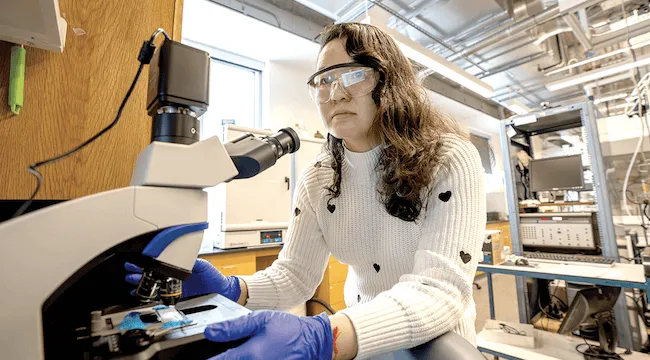R1 SPOTLIGHT: Yangguang Ou – Exploring Brain’s Chemistry’s Effects on Memories of Trauma and Pain
The most stubborn ghosts lurk in the mind —traumas, fears, losses—that will not leave. We easily forget everyday things. “So why are painful memories impossible to forget?” asks Assistant Professor of Chemistry Yangguang Ou. For today’s neuroscientists and biochemists, like Ou, the question is: can the hidden self be revealed—and maybe healed—by teasing apart the intricate interplay of molecules throughout a living body? And what, exactly, goes flowing in and out of those corridors of the brain?
To explore these questions, Ou and her students are building new tools and approaches to detect neurotransmitters and other important biochemicals as they move and work. Since joining the UVM faculty in 2020, Ou has focused on fashioning super-sensitive sensors that can be tailored to detect specific molecules, some in lab dishes, some in living mice and rats, and, eventually, she hopes, as a tool to help doctors and patients zero in on the chemical basis of mental illnesses and other ailments.
Read an interview with Yangguang Ou about her latest work.
Research of this type has contributed to the University of Vermont's designation by the Carnegie Classification of Institutions of Higher Education as an R1 institution, placing it in the top tier of research universities in the U.S.
